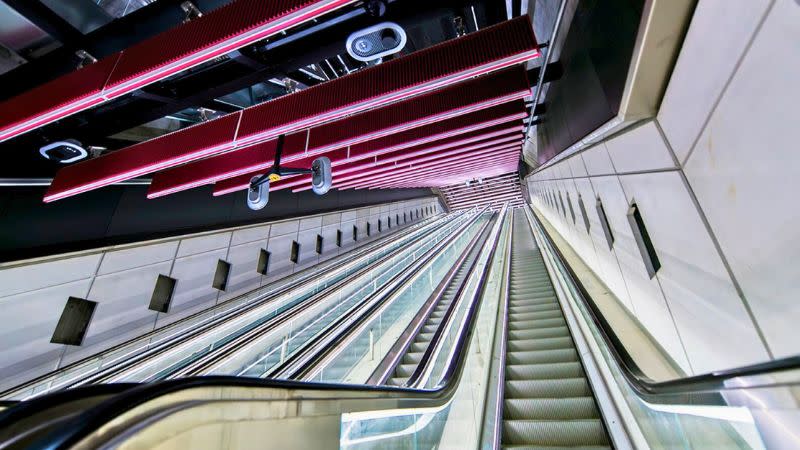Victoria Metro Tunnel Opening Date Moves Forward Again

The opening date for Victoria’s $13-billion-plus Metro Tunnel—which will be delivered a year ahead of schedule—has come forward again, this time by a week.
The project, the first major expansion of Melbourne’s rail network in decades, will now open to passengers on November 30.
The opening will bring five new underground stations — Arden, Parkville, State Library, Town Hall (pictured above) and Anzac — online, creating a new end-to-end rail corridor through the CBD.
Passengers will be able to travel directly between the Cranbourne, Pakenham and Sunbury lines without changing in the city, easing pressure on the City Loop and reducing peak-hour crowding.
To encourage early uptake, public transport will be free on weekends from November 30 through to 1 February.
The Metro Tunnel is one of Victoria’s largest transport projects, featuring twin 9km tunnels beneath the CBD and high-capacity signalling to support more frequent services.
Construction began in 2017 to unlock network capacity for Melbourne’s fast-growing western and south-eastern suburbs and to integrate the next generation of High Capacity Metro Trains.
Property analysts expect the new stations to increase land values and accelerate residential development in precincts along the tunnel, particularly Arden and Parkville.
Arden is already earmarked as a major urban renewal area, and the new station is expected to anchor thousands of new homes, offices and community facilities over the next two decades.

Parkville’s enhanced accessibility is likely to strengthen demand for higher-density housing around the medical and university precinct, while Anzac Station on St Kilda Road is forecast to boost apartment and mixed-use development in surrounding suburbs including South Melbourne, Albert Park and Middle Park.
Agents say improved connectivity typically lifts values within 800m of major stations, and developers have been positioning for several years in anticipation of the tunnel’s opening.
The government says the new corridor will reshape travel across the city, cutting travel times to key employment hubs and supporting long-term housing supply in areas designated for urban growth.
The project has also marked by a significant cost blowout, with the latest estimate putting the total at $13.48 billion.
Early projections had the cost closer to $11 billion, but contract disputes, construction delays and the complexity of tunnelling beneath the CBD have pushed the budget higher during the past several years.














